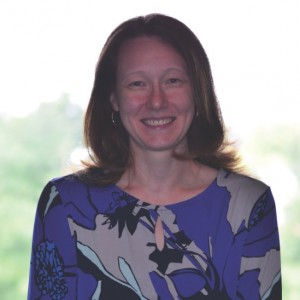By Olivia Seecof
Writer
Professor of English Saundra Morris, Lauren Rambo ’12 and Pat Zailckas ’13 are this year’s runners up for People of the Year.
In addition to teaching English, Morris serves as a Posse Mentor for the 2011-12 Boston Posse Five. In the past, she has administered the Social Justice Residential College. This year, she helped lead the Occupy Wall Street/Lewisburg March and participated in the Black Student Union March for Trayvon Martin. Morris also served on the LGBT Advisory Board. She publishes on and teaches American poetry with specialties in Ralph Waldo Emerson and American Romanticism.
“I am glad that The Bucknellian and students have honored what I try to achieve–a combination of academic rigor, professional publication, love for my students and Posse Scholars, passion for my subject and devotion to issues of social justice,” Morris said.
Her students see this commitment and dedication.
“Professor Morris is my English adviser and, more importantly, my mentor. Her dedication to students is infectious, her commitment to holistic learning is unparalleled and her love for Diet Coke is unrivaled,” Liz Yale ’12 said.
Rambo is the current president of Activities and Campus Events (ACE), a member of Chi Omega Sorority, an intern in the Office of Admissions and a research student in the Bucknell Baby Lab and Child Language Research. She has been closely involved with all four of these organizations throughout her college experience and has earned multiple leadership roles in them.
“All of these things have made my experience at Bucknell what it’s been. [I’ve] enjoyed being a part of the changes that all of these activities have gone through. Bucknell has been so important to me over the last four years,” Rambo said.
“Lauren is a phenomenal leader on campus. She is incredibly dedicated, passionate and positive about all she is involved in. Around campus many know Lauren as a great leader, but more importantly as a kind, genuine and deserving Bucknellian,” said Callie Frieler, assistant director of campus activities and programs. “As the President of ACE this past academic year she was instrumental in restructuring and planning our large series events. As a senior she will be greatly missed. She has had quite the impact on campus as a student leader as well as a mentor for her classmates to look up to.”
Zailckas is enrolled in the five-year chemical engineering and management dual-degree program. He is a brother of Sigma Phi Epsilon Fraternity, and this is his second year as an active member of the Interfraternity Council (IFC). Last year, he was secretary and this year he is president of IFC. Zailckas also participated in Bucknell’s Institute for Leadership in Technology and Management (ILTM) and attributes much of his growth as a professional and leader to this program; he said it was a “crash-course on effective leadership and management techniques.”
“Although I have had plenty of success this year as IFC president, I really do owe a lot of it to the entire IFC executive board as well as Kevin Foster, assistant director of residential education for fraternity affairs, for all of their dedication and support in working to initiate overdue positive changes within the fraternity system here at Bucknell. I cannot thank these men enough for helping me become the leader I am today,” Zailckas said.
“Pat and I have known each other since freshman year, when we found out we were going to be roommates. He’s a genuine guy who is dedicated to his studies and trying to make a difference on the Bucknell campus, especially in Greek life,” Dotun Odewale ’13 said.
Congratulations again to Morris, Rambo and Zailckas on being this year’s runners up to The Bucknellian’s People of the Year award.

